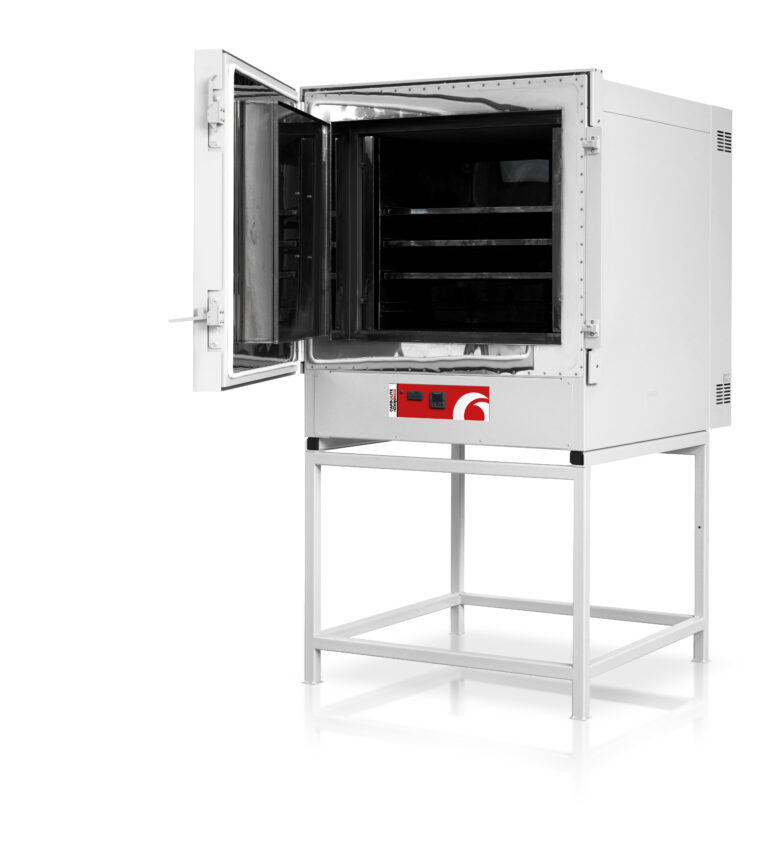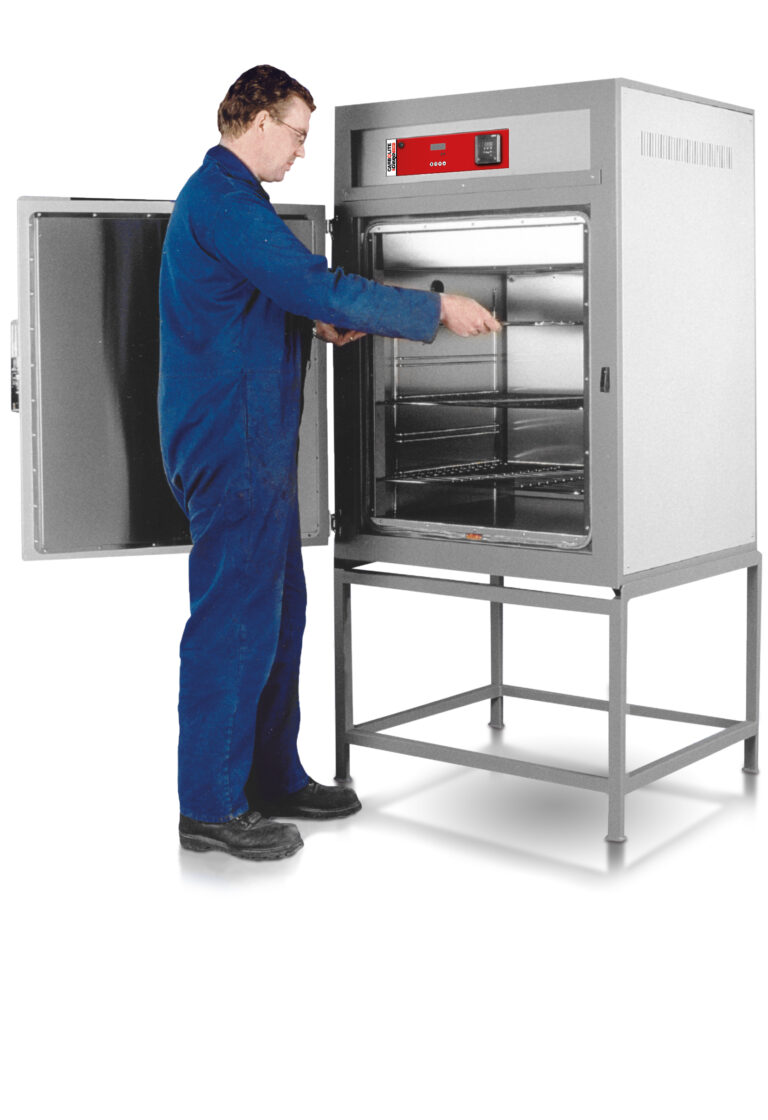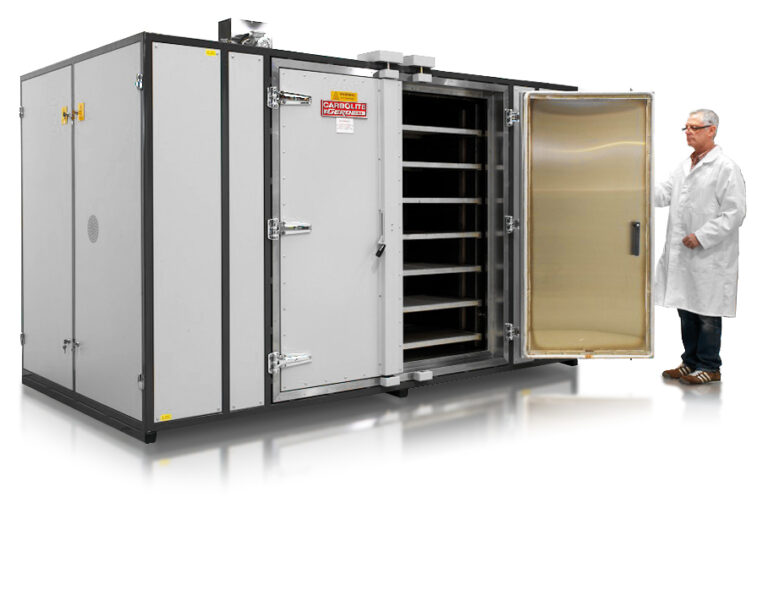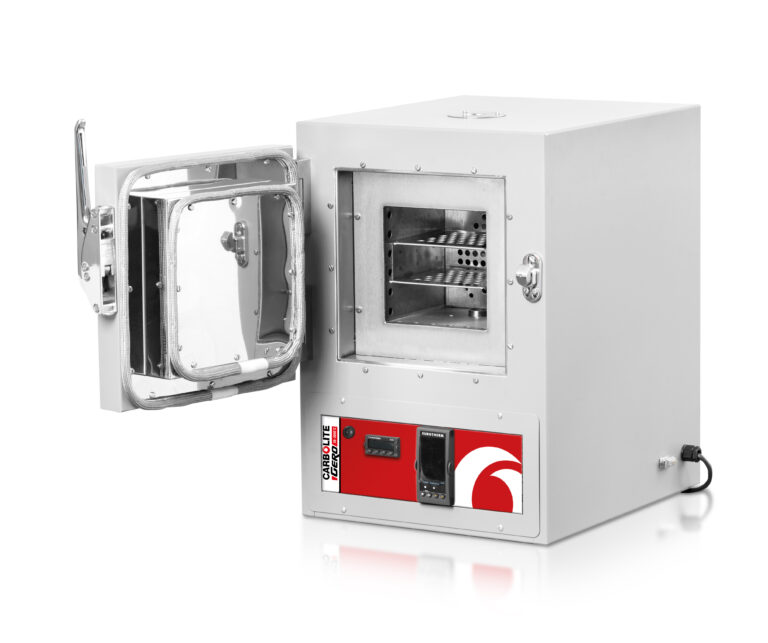more than 80 years of heating engineering
Industrial Ovens
Carbolite Gero manufactures a range of industrial ovens for batch processing. Industrial oven models are available with temperatures up to 700°C and volumes up to more than 13,000 litres, meeting the demands for different industrial applications and customer requirements.
The design is characterized by robust construction and lasting materials, making the industrial oven range ideal for heavy-duty applications. Each industrial oven may be built and supplied with a wide range of options, including over-temperature protection, loading and handling mechanisms or advanced temperature control systems.
Showing all results
LGP Large General Purpose Oven
- Max temp: 250 - 700 °C
- Volume: 500 to 13820 litres
Industrial Oven Details
Typical applications of our industrial ovens include drying, baking, or curing components. Further to these applications, all of the industrial ovens we offer can be highly customized and therefore fulfil the demanding requirements of many different industries completely.
For applications such as AMS 2750G heat treatment under Nadcap, our general purpose industrial oven, high-temperature industrial oven, and large general purpose industrial oven can all be modified at the order stage to include sophisticated control systems and data recording.
Our rapid cooling industrial oven is perfect for tempering and annealing applications, including, but not limited to, annealing thermo-luminescent dosimeters. The 3508P1 programmable controller this industrial oven is fitted with provides precise control over the rate of temperature rise or fall and the period over which a particular temperature is held.
Industrial Ovens - FAQ
WHAT IS AN INDUSTRIAL OVEN?
An industrial oven is a heating device that meets the precise temperature control and temperature uniformity requirements of a specific process. It is a common piece of equipment used in a production environment where the heating of materials is required. Depending on the application, industrial ovens vary in size and volume as well the maximum temperature they can reach. Industrial ovens can be manufactured to comply with industry standards such as NADCAP AMS2750G and CQI-9.
WHAT IS THE DIFFERENCE BETWEEN A LABORATORY AND AN INDUSTRIAL OVEN?
In principle, the difference between a laboratory oven and an industrial oven is the size. Industrial ovens tend to process larger batches of material, whereas laboratory ovens are typically used to process smaller samples. Industrial ovens have a more robust construction to withstand the demands of production facilities.
HOW DOES AN INDUSTRIAL OVEN WORK?
An industrial oven works by heating the air in the chamber using electrically operated heating elements. The air is usually mixed using a circulation fan mounted within the heated chamber to ensure uniform heat distribution, often known as ‘forced convection.’ The hot air heats parts placed inside the chamber.
WHAT IS THE TEMPERATURE RANGE OF AN INDUSTRIAL OVEN?
The typical operating temperature of an industrial oven is entirely dependent on the application requirements. Carbolite Gero supplies ovens with maximum temperatures ranging up to 300°C for applications such as drying and moisture extraction, and ovens for applications such as annealing and sintering that can require temperatures up to 600 or 700°C.
WHAT IS THE BENEFIT OF AN ELECTRICAL INDUSTRIAL OVEN OVER A GAS OVEN?
The primary benefits of an electrical industrial oven over a gas oven are cleanliness and accuracy of temperature control. Electrical heating is very clean because there are no ‘products of combustion’ contaminating the chamber. Electrical heating achieves very precise temperature control because the power to the heating elements can be controlled very quickly and accurately.
HOW EXPENSIVE IS AN INDUSTRIAL OVEN TO RUN?
The cost of running an industrial oven is primarily dependent on the operating temperature and size of the chamber. Energy efficient industrial ovens are well insulated and the power consumption can be easily calculated. If the process requires significant air changes, for example to remove potentially explosive solvents, then the running costs will be higher.
Subscribe
Want to know when we have promotions on, webinars from your favourite partners, and more about what Opti-Tech Scientific is doing? Subscribe to our newsletters today!




